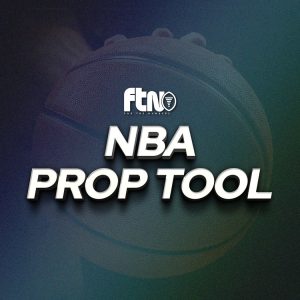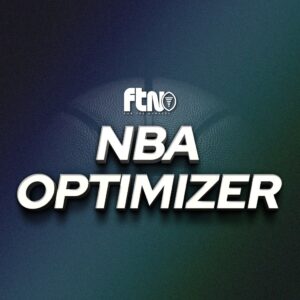
Welcome to the game-by-game DFS breakdown. In this write-up, I’ll walk you through the players, stacks, one-offs, etc., that I’ll be targeting weekly in DFS. My aim here is that you can apply this encyclopedia of stats and word vomit to a variety of slates with everything from showdown, to cash, and your GPP entries. With plenty of words ahead to peruse, let’s dive into this week’s action.
Philadelphia Eagles vs. Atlanta Falcons
ATL -3.5 O/U 48.5
Pace and playcalling
The pace and playcalling for both of these teams will be interesting in Week 1 as both squads now have new head coaches and offensive coordinators. The pace should be healthy on both sides of the ball. Last year Atlanta ranked 13th in neutral script pace, but new head coach Arthur Smith led a Titans team ranked sixth in neutral pace. The Eagles were tenth in pace in close games. New play-caller Shane Steichen’s Chargers were ninth, while Nick Sirianni’s Colts were 21st in pace in neutral game environments. If the Falcons jump out to an early lead, the pace could be even better as Indy was sixth in negative game script pace last season, and the Chargers were 13th.
Forecasting the Falcons passing rate has been a debate all offseason after ranking fifth last season. The question is, how much (if any) do they drop this season. Smith’s Titans were 29th in neutral script passing rate last season. The plus for Matt Ryan and company is the Eagles on paper set up as a pass funnel as the strength of their defense remains their defensive line and run defense, so while the rest of the season outlook is in question, we could see Ryan sling it here. The passing rate concerns here extend to the red zone where the Falcons were second last season, while Tennessee has the second-highest red zone rushing rate. The Eagles should be run-pass balanced as the Colts and Chargers were 18th and 19th in neutral script passing rates last season.
Injuries
Philadelphia
- Rodney McLeod (SS) is out this week (knee).
- Brandon Brooks (G) has been limited all week, but he carries no injury designation into this game.
Eagles
Jalen Hurts is priced appropriately on Fanduel (QB8) and DraftKings (QB9), but considering the matchup, he could be the top-scoring quarterback in Week 1. The Falcons return a similar cast of characters on defense that allowed the eighth highest adjusted completion rate (77.9%), sixth-highest yards per attempt (7.8), and third-most passing touchdowns (34) per FTN Data. Atlanta was stout against the run last year, but that was more against opposing running backs rather than quarterbacks. The dirty birds allowed the ninth-most rushing yards (344) and fifth-most (tied) rushing touchdowns (5) to opposing quarterbacks. Per FTN Data, they allowed the fourth-most scramble yards (264) as well.
Miles Sanders is nothing more than a large field GPP play for me this week and a dicey one at that. Sanders takes on a Falcons’ defense that ranked ninth in adjusted line yards and fourth in open field yards allowed last year per Football Outsiders. Per FTN Data, this run defense ranked 13th in stuffed run rate (48.4%). Even if we’re hoping for big plays from him in the passing game, the outlook isn’t any better. Sanders has struggled with drops in camp and now faces a defense ranked 13th in DVOA against pass-catching running backs last season. It’s also not outlandish to consider that Boston Scott could cut into Sanders’ routes this season starting in Week 1. In showdown, Scott is an interesting leverage play off Hurts and Sanders, but there’s no reason to go there for the main slate.
DeVonta Smith is in line for a Week 1 field day with the Falcons’ starting corners. Per preseason snap alignments, Atlanta will likely trot out A.J. Terrell and Fabian Moreau on the outside with Isaiah Oliver covering the slot. Last season Terrell and Oliver were turnstiles allowing catch rates of 69.6% and 75.6% with 109.2 and 130.1 passer ratings in coverage. Moreau had a solid season last year in Washington, but that doesn’t make him a good NFL corner. He allowed at least a 65.5% catch rate and 97.0 passer rating in coverage in the three seasons prior. Smith is the core stacking option with Hurts.

If you’re considering double stacking Hurts here, there’s a variety of receiving options to chose from. Jalen Reagor, Dallas Goedert, and Zach Ertz make the most sense, but in showdown, Quez Watkins is also in play. Watkins versus Greg Ward’s snaps percentages are an unknown though. With Dean Pees now the defensive coordinator, the Falcons will likely remain a predominantly zone scheme defense. In Pees’ final season in Tennessee, his starting corners were in zone coverage approximately 56.2-60% of their snaps. This bodes well for Reagor, whose yards per route run improved (0.79 vs. 1.56) versus zone in his rookie season.
Goedert and Ertz have a cake matchup against the Falcons. Last year per Football Outsiders, they ranked 23rd in DVOA against the tight end position allowing the fourth-most receiving yards (956) and receiving touchdowns (10). Pees’ defense has given up points to the tight ends previously. In 2019 the Titans allowed the seventh-most receiving yards (916) and third-most receiving touchdowns (9) to tight ends. During Hurts’ three full starts last season, it was splitting hairs between Goedert (17.3%) and Ertz (17%) in target share and red zone usage as Ertz drew one red zone look while Goedert had none. If picking one, my slight lean is Ertz, who has been talked up all camp and is the more contrarian play in GPPs. Ertz and Goedert are stack options with Hurts, but I don’t like them to consider them as one-offs.
Falcons
Matt Ryan faces off against a pass funnel defense in Philly. Last season the Eagles ranked 24th in pass defense DVOA (per Football Outsiders), allowing the fifth-highest adjusted completion rate (78.3%) and yards per attempt (7.7) per FTN Data. Ryan sets up well on paper, but this could all go off the rails if the Falcons struggle to protect him like last season. Ryan saw the fourth most pressures (239) last season and the 14th highest percentage of dropbacks under pressure (34.9%). Against pressure, Ryan was ranked 19th in (49.2%) completion rate and 15th in yards per attempt (6.4). Last year the Eagles ranked second in pressure rate (27.9%) despite blitzing at the fifth-lowest rate (22.2%). Even if Philadelphia drops closer to the Colts’ 17.1% blitz rate of last season, they can still get in Ryan’s face often. This limits Ryan to a large field GPP or mill-maker play only. If you’re game stacking this game, you can likely roster 1-2 of the pass-catching options and get most of Ryan’s production from them.
Mike Davis: I’ll happily avoid in this matchup. Last season, the Eagles ranked third in adjusted line yards and fourth in second-level yards allowed (per Football Outsiders). Per FTN Data, they ranked first in stuff rate (52.6%) and tenth in yards per attempt allowed (4.0). With a thin running back depth chart and Wayne Gallman only recently signed, Cordarrelle Patterson is a viable play in showdown in lineups that “tell a story” of the Falcons trailing as a contrarian pivot off Davis.
If Calvin Ridley comes in as chalk, he is the chalk you eat with a spoon, a spork, a ladle. Since 2018 in the games Calvin Ridley has played without Julio Jones, his numbers have been ridiculous. In those eight games, he’s averaging 21.8 DK points per game. If you look at just last season, that number jumps to 22.5 DK points per game. Ridley will match up on the outside with Steven Nelson and Darius Slay. If this defense resembles the Colts’ defense (it will) under Jonathan Gannon, they will operate in zone coverage ~77% of their snaps. Nelson is the tougher draw of these two as he allowed a 63.3% catch rate and 62.6 passer rating in zone coverage last season. The Falcons should have no issues moving Ridley off Nelson to Slay, though, as these two corners will play sides. Last season Xavier Rhodes and Rock Ya-Sin played one side of the field on 85-88.9% of their snaps. Slay has no chance versus Ridley. In 2020 Slay allowed an 88% catch rate and 108.7 passer rating in zone coverage per PFF. Among all wideouts with 15 or more zone targets last season (per PFF), Ridley ranked 18th in yards per route run against zone coverage.
Russell Gage is not a player I have much interest in. Last season, he could only churn out 1.54 yards per route run (58th among wideouts with 15 or more zone targets) against zone coverage per PFF. Per our FTN Daily splits tool above, his numbers didn’t budge much without Julio Jones in the lineup. The same can be said for Olamide Zaccheaus, who will have his snaps capped as he will only see the field when the team goes three-wide.
This brings us to Kyle Pitts and Hayden Hurst for Atlanta. Pitts will be a very popular play this weekend. There’s merit to rostering both players in this matchup against an Eagles’ defense that ranked 26th in DVOA per Football Outsiders against the tight end position last year. To tight ends, Philadelphia allowed the 12th most receptions (80) and seventh-most receiving touchdowns (9). Pitts is an easier pill to swallow price-wise on DraftKings, where he’s the TE8 in salary, versus FanDuel, where he’s the TE3. He will likely see his roster percentage a shade higher on DraftKings than FanDuel. He’s a fine play across both sites. If you’re looking to get leverage off the Pitts chalk, Hurst is it. The matchup is just as juicy for Hurst, and his roster percentage will be minuscule versus Pitts. The price difference across the two sites (more so on FanDuel) is substantial as he’s the TE19 ($1100 difference) on FanDuel and the TE18 on DraftKings ($700 difference).
Core plays
Jalen Hurts, DeVonta Smith, Calvin Ridley, Kyle Pitts
GPP only
Matt Ryan, Zach Ertz / Dallas Goedert (in a Hurts stack), Jalen Reagor, Hayden Hurst
Showdown only
Pittsburgh Steelers vs. Buffalo Bills
BUF -6.5 O/U 48.5
Pace and playcalling
The pace of this game should be fine, but it won’t be tops on this slate. Last season the Steelers were ranked 11th in neutral script pace, and the Bills were 17th. Despite proclamations all offseason that Pittsburgh will run the ball more, this game could feature a bevy of passing. Last year the Steelers were ranked first in neutral script passing rate. Buffalo was right behind them, finishing second. Even if Pittsburgh wants to “establish the run” in this game, they will still be above average in passing volume. If Ben Roethlisberger and company fall behind early, we could see the passing volume flood gates open, though. Last season the Steelers were fourth in the NFL in passing rate (76.0%) when trailing.
Injuries
Pittsburgh
- T.J. Watt was a possibility to miss this game (non-injury related) but it looks like he’ll get in a practice and be good to go this week.
- Alex Highsmith (LB) limited practice on Wednesday, but he was downgraded to out on Thursday. He practiced in full on Friday and has been listed as questionable.
Buffalo
- Emmanuel Sanders has been limited all week (foot). He’s Questionable.
- Star Lotulelei (DT) is out this week. I was already high on Najee Harris. This is a plus.
Steelers
The last time we saw these two teams play in Week 14 of last season, Ben Roethlisberger struggled, completing only 56.7% of his passes with 187 passing yards and two passing touchdowns (two picks). The Bills’ passing defense is no joke after allowing the ninth-lowest passing touchdowns (23) and yards per attempt (6.89) last season. While Roethlisberger isn’t a player I’m in love with in this game doesn’t mean that I’m fully fading this passing attack.
After no-showing Roethlisberger much love for this slate, I’m about to craft you the Najee Harris love letter. The Steelers have told us he will be the unquestioned workhorse in this backfield all offseason, and this matchup is the perfect one to let him run wild. Last season the Bills were quietly a terrible run defense. Buffalo allowed the sixth-most touchdowns (21) on the ground while ranking fourth in gash rate (13.4%) per FTN Data. Only the Bengals, Texans, and Bears allowed ten-plus yard runs at a higher rate. Even if the Bills jump out to an early lead, Harris will be running the routes for the Steelers out of the backfield against a Bills team that’s (15th in DVOA per Football Outsiders against pass-catching backs) middle of the road against running backs through the air. For his projected workload and matchup, Harris is too cheap (RB13 DraftKings, RB14 FanDuel).
The fantastic fact about the Steeler wide receivers is that you can garner his production in-game stacks by playing 1-2 of these receivers with an immobile Roethlisberger. Diontae Johnson is the headliner here. Last season in the 12 games he was a full-time player, he averaged 20.2 DK points per game with a ridiculous 12.2 targets per game. Let’s get this out of the way as well that Tre’Davious White will not be shadowing in this game. Per our FTN Daily Shadow Index, White “shadowed” in only four games last season and only followed one receiver on more than 60% of routes. When not against White, Johnson will match up with Levi Wallace (RCB 63%), who allowed a 55.9% catch rate and 79.4 passer rating in coverage. While this isn’t a glistening matchup to target, Johnson’s volume is too large to ignore.
When White is lined up opposite Diontae Johnson, he’ll cover Chase Claypool on the outside. White allowed a 63% catch rate and 96.2 passer rating in coverage last season. There are too many receivers in plus matchups on this slate to consider rolling out Claypool versus White. JuJu Smith-Schuster is, however, in the conversation, especially if you’re building a game stack. Smith-Schuster (85.3% slot rate last season) will match up with Taron Johnson in the slot. Taron Johnson allowed a 72.9% catch rate and 95.0 passer rating in coverage last season. Smith-Schuster secured a touchdown versus Buffalo last time they played. After leading the wide receivers in red-zone targets (16) last season, he’s got a good shot to do so this week.
None of the Pittsburgh tight ends will make my main lineup or MME exposures for the main slate. The only format I would consider any of them would be a large field showdown. The Bills were 13th in DVOA against the tight end position, per Football Outsiders. Buffalo did allow the most receptions to the position (92) and the second-most receiving yards (993), but this has more to do with Matt Milano’s absence (limited to ten games related to injury). If taking a shot on any tight end in showdown Eric Ebron would be that dart. He led the team in red-zone targets (18) last season, and while Pat Freiermuth likely hampers his snaps and routes, pass-catching is the reason when he’s on the field.
Bills
Last season Josh Allen struggled in his Week 14 meeting with the steel curtain. He managed to only complete 55.8% of his passes with 5.5 yards per attempt. This year could be a very different story on a number of levels. Allen faces a Pittsburgh defense that was third in blitz rate last season (40.3%), so he can expect some extra rushers to be headed his direction all game long. Allen had no issues carving up opposing defenses last season when teams did this. He ranked ninth in completion rate (66.2%) and fifth in yards per attempt (8.1) against the blitz among all quarterbacks with 225 or more dropbacks. The Steelers are a stout defense but as we’ll discuss later a deeper Bills receiving group this year could give Allen and this passing attack the edge. Allen and this aerial attack make for a great contrarian stack in a game with the fifth-highest over/under on the main slate.
Zack Moss and Devin Singletary aren’t in consideration for me this week. The Steelers’ run defense was stellar last season, and they return that core this season. Pittsburgh ranked second in adjusted line yards allowed last season and tenth in second-level yards. They were very efficient at slowing down opposing ground games ranking ninth in stuff rate (49.6%) per FTN Data.
With a deep receiver room this year, look for the Bills to spread this defense out. Last season when this group of wideouts was healthy, their usage of 10 personnel bumped from 15% to 20%. Last year in this matchup, the Bills ran 80% of their pass plays from 11 personnel while mixing in 9% of 10 or 11 personnel. This matchup could be quite different, though. Last year in Week 14, John Brown was on the IR, and the Bills had Cole Beasley, Stefon Diggs, and Gabriel Davis in three-wide sets. This season they’ll have those three receivers and Emmanuel Sanders all ready for deployment. This will help stretch out a Steelers’ secondary that is quite good on paper. The starting trio of Joe Haden, Cameron Sutton, and Ahkello Witherspoon is no joke.
Haden allowed a 51.5% catch rate and 81.3 passer rating in coverage last season. Sutton permitted a 63.1% catch rate and 79.7 passer rating via the slot. Witherspoon gave up a 57.1% catch rate and 83.3 passer rating. By incorporating a fourth wideout to deal with, the Steelers will be forced to utilize the deeper recesses of their cornerback roomie. Justin Layne and Arthur Maulet. In Layne’s brief career, he’s allowed an 83.3% catch rate (12 targets). Maulet and his 4.62 speed has been someone we’ve picked on in previous seasons as he’s given up a 71.4% catch rate and 95.6 passer rating in coverage in his career.

Stefon Diggs will lead the way again after carving up this secondary last year with ten receptions (14 targets) and 130 receiving yards. Last year, the Steelers were a predominantly zone coverage team (56.4-57.9% for their outside corners per PFF). The Bills have the necessary weapons to attack the soft spots in this coverage. Last year among all receivers with 15 or more zone targets, Beasley ranked fourth in yards per route run (2.65) and Sanders ranked seventh (2.40) against zone coverage. Diggs was no slouch either with 1.92 yards per route run against zone. Beasley is an interesting target and stack worthy with Allen here, but Emmanuel Sanders is the most interesting player here after Diggs. In his brief Week 3 preseason action, with Diggs out, Sanders played the slot on 27.2% of his snaps while Gabriel Davis played mostly outside (only 18.1% slot). Yes, these are the smallest of samples, but the reason I bring it up is when Buffalo rolls out four-wide receiver Sanders looks like the favorite to kick inside with Beasley. If he or Beasley draws the more favorable matchup with one of these backup corners, they could be peppered by Allen.
Dawson Knox is not in consideration for my rosters in this matchup. The Steelers ranked first in DVOA against the tight end position last season.
Core plays
Najee Harris, Diontae Johnson, Stefon Diggs
GPP only
JuJu Smith-Schuster, Josh Allen, Cole Beasley, Emmanuel Sanders
Showdown only
Minnesota Vikings vs. Cincinnati Bengals
MIN -3.5 O/U 47.5
Pace and playcalling
These two teams could not be more polar opposites in offensive philosophy. Cincinnati will look to play fast and lean on their passing game. Last season with Joe Burrow under center, they ranked 12th in neutral scrip pace and fourth in neutral script passing rate (62.2%). Minnesota, however, would love nothing more than to play slow and run the ball. The Vikings ranked 24th in neutral script pace and featured the league’s third-highest neutral script rushing rate. If they jump out to a lead early, the rushing rate will only climb. Minnesota was seventh in positive script rushing rate (63.0%) last year.
Injuries
Cincinnati
- Trae Waynes (CB) will miss this game and Eli Apple will assume his starting spot opposite Chidobe Awuzie.
Minnesota
- For the Vikings Christian Darrisaw will most likely miss this game. Rashod Hill still held the starting job though, so this doesn’t move the needle.
- Anthony Barr (knee) logged DNPs on Thursday and Friday. He’s been ruled out.
- Tyler Conklin (hamstring) was limited in practice on Wednesday, but he upgraded to full on Thursday. He doesn’t carry an injury designation into this game.
Vikings
Kirk Cousins is an interesting GPP play this week against a Bengals pass defense that lost their best corner in William Jackson this offseason and is now down a starting corner in Trae Waynes this week. Cincinnati ranked 27th in pass defense DVOA allowing the seventh-most passing touchdowns (32) last season and they look even worse on paper this year. The big concern for Cousins is always the passing volume, especially in a game where they are the road favorite. Cousins won’t make my single entry or three max pool, but he’s worth considering if you’re multi-entering.
Dalvin Cook is one of my favorite plays of this entire slate. Looking back at his splits from last season in the eight games in which the Vikings were favored by 3.5 or more, Cook crushed with his scoring jumping through the roof. Last season the Bengals ranked 31st in yards after contact per attempt allowed (3.22) with only the Texans allowing more. They were also the league’s worst run defense in gash rate allowed (14.9%). Cincinnati added Trey Hendrickson and Larry Ogunjobi to the defensive line this offseason, but neither player is lauded for their run-stopping capabilities rather they were more sought after for their pass rush skills. Cook is set to start this season in a spectacular manner.
The bull case for Cousins lies in these corners that Justin Jefferson and Adam Thielen will face off against this week. Chidobe Awuzie and Eli Apple will struggle mightily to stay with Jefferson and Thielen on the outside. Awuzie allowed a 65.8% catch rate and 124.5 passer rating last season. Eli Apple played sparingly for Carolina last year but looking back to 2019, he was equally terrible with a 63.2% catch rate allowed and a 107.5 passer rating in coverage. In Weeks 3-17 (excluding Week 12 when Thielen was on the COVID list), Jefferson led in target share last season (27% vs. Thielen’s 23%), but he was a distant second place in red-zone targets with seven to Thielen’s 18. If picking one receiver to roster, Jefferson carries the higher yardage ceiling. If Thielen outpaces him in Week 1, it’ll be on the strength of a two-touchdown performance which is impossible to forecast. Make sure to check FTN’s roster percentage projections throughout the weekend, as Jefferson and Thielen could make for interesting leverage plays off Cook.
Last season the Bengals ranked 12th in DVOA against the tight end position, but with a shutdown corner like William Jackson on the outside, opposing teams funneled volume underneath. Cincinnati saw the seventh-most targets (126) to the tight end position allowing the ninth-most receptions (82), third-most receiving yards (987), and the sixth-most DK points per game (14.8). This brings us to Tyler Conklin, who assumes the lead role in the tight end pecking order since Christopher Herndon has not practiced extensively. Last season in Weeks 15-17 without Kyle Rudolph and Smith healthy, he played 79-88% of snaps running routes on 79.5% of Cousins’ dropbacks. Conklin likely assumes a similar role with close to (maybe a shade above) his 15% target share he saw over the same duration. Outside of a game stack, I don’t have much interest in Conklin this week in a game where passing volume is a concern, and at best, he’s the third option, but more likely, he’s the fourth target option behind Jefferson, Thielen, and Cook.
Bengals
Since pricing was released, Joe Burrow has been discussed a lot, but we need some context about the matchup he’s walking into. Yes, Burrow is underpriced, especially on DraftKings, where he’s the QB15. This is not the cakewalk matchup that it appears to be on paper looking at the Vikings 2020 season. Last year this secondary allowed the tenth-most passing yards (4,257), eighth-most passing touchdowns (30), and fifth-highest yards per attempt (7.8). This is also a defense without Danielle Hunter, Michael Pierce, and Anthony Barr all season. Eric Kendricks was limited to 11 games, and the team relied upon rookie corners and lesser talents in 2020. This year is a very different story. While Barr will miss this game, all of those other players have returned, and the Vikings added reinforcements in the offseason. The team added run-stopper Dalvin Tomlinson and Patrick Peterson, Bashaud Breeland, and Xavier Woods to the backend. While quarterback roster percentages will likely be flat as usual, I still don’t have much interest in Burrow in his first game back from injury in a matchup that’s tougher than any 2020 metrics appear.
Joe Mixon is a player that people will gravitate to on DraftKings, much like Burrow because for his volume, he’s mispriced as the RB15. FanDuel priced him more appropriately at RB9, but overall like Burrow, he’s a tough player for me to get excited about. Yes, the Bengals improved the offensive line this offseason, but the question is how much. Last season this team ranked 31st in adjusted line yards, 22nd in second-level yards, and 25th in open field yards generated. Mixon takes on a Minnesota run defense that, yes, was ranked 32nd in stuff rate but were surprisingly tenth best in gash rate per FTN Data. Now add on top of it that they have reinforcements coming, and this defense is quietly frightening for opposing running backs. If they are closer to 2019, where they ranked 12th in second-level yards and 14th in open field yards where they allowed the seventh-fewest rushing touchdowns (8), Mixon will disappoint. Even if you’re banking on his now expanded passing role paying off if the Bengals are trailing, the Vikings were third in DVOA last season (per Football Outsiders) against receiving backs. Mixon is a good bet for 15-20 touches this week, but there are too many other backs in a similar price point across both sites to pivot to in better matchups with similar volume expectations.
Ja’Marr Chase, Tyler Boyd and Tee Higgins will match up with Bashaud Breeland, Mackensie Alexander and Patrick Peterson. The Bengals will rotate Chase and Higgins outside, while Boyd will see most of his snaps (85% in 2020) from the slot. Chase and Higgins have difficult draws on the outside against Breeland and Peterson. Breeland allowed a 55.6% catch rate and a 90.3 passer rating in coverage last year. While not a shut-down corner any longer, Peterson will benefit from the scheme change from Arizona to Minnesota. He’ll operate in zone coverage at a higher rate this season in Minnesota (~70% zone) than he did with the Cardinals (52.1% zone in 2020 per PFF). In 2020 he allowed a 67.7% catch rate in zone coverage, but he didn’t permit any touchdowns and allowed only a 76.4 passer rating. Higgins isn’t taking on a dusty has-been corner. This will be a tough week for these receivers. The matchup that Burrow could zero in on is Boyd versus Alexander in the slot. Last season Alexander allowed a 73.6% catch rate and 99.2 passer rating via the slot. If you’re targeting this game as a mini-stack around your main stack, Cook and Boyd make sense.
The answer if you’re considering a Bengals tight end in any lineup is just no. Even if you’re going full-blown game stack here, this isn’t a matchup to attack. The Vikings ranked sixth and first in DVOA against the tight end position the last two seasons.
Core plays
Dalvin Cook, Justin Jefferson, MIN DST
GPP only
Showdown only
San Francisco 49ers vs. Detroit Lions
SF -8 O/U 45
Pace and playcalling
This will be one of the slowest paced games of the entire slate. Last season the 49ers were 29th in neutral script pace. In close games, the Chargers were an up-tempo bunch last year (ninth), but I attribute that more to Shane Steichen and not Anthony Lynn. The Lions will likely more closely resemble the 2019 Chargers that ranked 27th in neutral script pace.
Big surprise, I know, but look for the 49ers to run the ball a ton here. Last season San Francisco ranked eighth in neutral script rushing rate. It’s unknown how the Lions’ offense will be designed in terms of run-pass splits. In 2019 the Chargers ranked first in passing rate (64.7%). Now that was also with Philip Rivers, and as we know, Jared Goff at this juncture of his career is still not as good as Rivers was then.
Injuries
San Francisco
- Emmanuel Moseley (CB, knee) has been listed as doubtful.
- Javon Kinlaw (DT, knee) has been listed as doubtful.
Detroit
- Per Dan Campbell, D’Andre Swift (RB, groin) will be good to go this week and is practicing in full currently.
- Michael Brockers (DE) has been limited this week with a shoulder injury. He’s listed as questionable.
- Taylor Decker (T) has been limited in practice on Wednesday, but he was DNP on Thursday with a finger injury. He’s been ruled out this week.
49ers
Jimmy Garoppolo is the arbitrage Kirk Cousins this week. An immobile quarterback in a fantastic matchup on a run-first offense. Trey Lance is still recovering from a finger injury, so it’s questionable if we see much of him in this game. Garoppolo faces a pass defense that ranked 32nd in pass defense DVOA (per Football Outsiders) last season, allowing the second-most passing yards (4,733) and fourth-most passing touchdowns (33). Because of all of these factors, Garoppolo sets up as nothing more than a milli maker type of DFS play.
Raheem Mostert and Trey Sermon are both set to feast this week. Behind an offensive line that ranked tenth in second-level yards last year, the chunk plays are coming. As recently as 2019, Mostert has been among the best rushers in the league, ranking first in breakaway run rate. The workload division here is the question. Camp battles and players in and out of the lineup, even preseason snaps, etc., provide nothing more than noise on figuring out how the carries and red zone roles pan out here. The fact of the matter is both Mostert and Sermon are strong plays against a run defense that allowed the sixth-highest yards after contact per attempt and the most rushing touchdowns last season. The offseason additions of Michael Brockers, Alim McNeill and Levi Onwuzurike will help, but they’re not going to push this run defense into a top-tier unit. Both Mostert (RB 19 DraftKings, RB18 FanDuel) and Sermon ($4,500 DraftKings, $5,200 FanDuel) are underpriced and fantastic GPP pivots off players around them. Both players are currently projected to be sub 5% rostered this week.
Brandon Aiyuk looks on track to play this week, so we’ll discuss this game as if he’s in. The 49ers ranked 29th last season in three-wide sets (44%) so the only wide receivers that will be full-time players will be Brandon Aiyuk and Deebo Samuel. Both of them will rotate on the outside seeing Amani Oruwariye and Jeff Okudah in coverage on half of their routes. Oruwariye is the worry here as he allowed a 55.3% catch rate and 96.0 passer rating last season. Okudah was a free pass giving up a 76.0% catch rate and 112.0 passer rating in his rookie campaign.
In the three games Aiyuk, Samuel and George Kittle all played 62% or more snaps, it was clear last season Kittle was still the alpha here. Aiyuk operated as the deep threat with an 18% target share and 43.6% of the air yards, but Kittle was the volume play. He held a 27.3% target share and a 30% air yard market share. Aiyuk is no more than a large field dart throw, but on this slate, there’s no reason to go there. Kittle is in play as a massive discount off Travis Kelce this week across both sites. The Lions were ranked 24th in DVOA against the tight end position last season. The only problem is in similar game environments since 2018 the splits have not been kind.
Lions
If there’s ever a game to consider playing Jared Goff (there’s not), it’s not this one. The pace will strangle his check-down play against a 49ers pass defense that ranked seventh in DVOA last season, allowing the fewest passing yards (3,054) last season.
Neither Detroit running back will make my main player pool this week against a stout defense against all things running back related. The 49ers were ranked fifth and sixth last season in second-level and open field yards allowed. They relinquished the ninth fewest rushing yards (1,184) and the ninth fewest rushing touchdowns (10). The prospects for D’Andre Swift and Jamaal Williams improve somewhat through the air as the 49ers ranked 19th in DVOA against receiving backs. They only surrendered three receiving touchdowns all last season to running backs, with Chase Edmonds, DeeJay Dallas and Alvin Kamara getting into the end zone. Kamara was the only one to surpass 20 receiving yards.
The quartet of Quintez Cephus, Kalif Raymond, Tyrell Williams and Amon-Ra St. Brown will have tough sledding against K’Waun Williams and Jason Verrett. With Moseley out, third-round draft pick, rookie Ambry Thomas likely draws the start opposite Verrett. Verrett was a shutdown corner, allowing a 76.3 passer rating in coverage. Williams was also staunch, allowing an 85.7 passer rating. This group could rotate snaps with Tyrell Williams being the only full-time receiver. Williams should challenge Hockenson and Swift for the team lead in targets, but this isn’t a game to chase volume from Goff.

T.J. Hockenson will have his weeks as a prime DFS target, but like the rest of this offense, I’ll be firmly avoiding him this week. The 49ers allowed the lowest receiving yardage total to tight ends last season, ranking third in DVOA against the position.
Core plays
N/A
GPP only
Raheem Mostert, Trey Sermon, George Kittle, SF DST
Showdown only
N/A
Arizona Cardinals vs. Tennessee Titans
TEN -3 O/U 52.5
Pace and playcalling
This could be one of the highest-paced games of the slate as the Cardinals ranked first in neutral script pace last season. The Titans were quietly sixth in neutral script pace. It’s not set in stone this continues under new offensive coordinator Todd Downing, but even if they drop back to 12th-15th, this game will still have a healthy play volume with the Cardinals sprinting all game. These two teams get different raps, with the Cardinals getting the pass-first label when in reality they are run balance ranking 22nd last year in neutral script passing rate. The Titans were 29th in this category. The plus for Arizona is their pace pumps up the passing attempt numbers.
Injuries
Arizona
- N/A
Tennessee
- A.J. Brown (WR) did not practice on Wednesday (knee), but he returned to full practice on Thursday. Brown doesn’t carry an injury designation into this game.
- Chris Jackson (slot CB) was limited all week (hamstring) and is listed as questionable.
Cardinals
Before his injury last season, Kyler Murray was on a legendary pace averaging 31.3 DraftKings points per game (30.1, FanDuel). Murray was crushing the opposition averaging 67.1 rushing yards and three total touchdowns per game. Murray gets to kick off this season against one of the worst pass defenses in the NFL. Last season the Titans allowed the ninth-highest adjusted completion rate (77.5%) to opposing passers. This secondary permitted the fifth-most passing yards (4,593) and second-most passing touchdowns (36). The offseason addition of Janoris Jenkins will help, but this is a secondary Murray should have his way within Week 1.
The Tennessee run defense was a middle-of-the-road affair. The Titans ranked 14th in adjusted line yards allowed, 18th in second-level yards allowed, and 27th in open field yards allowed. Mike Vrabel’s defense allowed the tenth-most rushing yards (1,592) and sixth-most rushing touchdowns (15). Chase Edmonds and James Conner are solid plays, especially Conner, who looks to pick up Kenyan Drake‘s goal-line role that saw him finish third in carries inside the five-yard line (21). Murray’s injury played into Drake’s heavy usage in close last year. The answer here is if you want exposure to a smash matchup through the air and a solid one on the ground, just play Kyler Murray and call it a day.
The Cardinals are primed for an all-out aerial assault against the Titans in this matchup. DeAndre Hopkins, who played (82%) almost exclusively as the LWR, will match up with Jackrabbit Jenkins (yes, I had to double-check this too), who allowed a 59.0% catch rate and 79.0 passer rating in coverage last season. Hopkins is still a target hog absorbing 29.5% of the targets and 33.3% of the air yards last season. While the matchup with Jenkins isn’t ideal, this is DeAndre Hopkins, so take it with a grain of salt. With that being said, it is also viable to build Murray stacks and not include Hopkins because the other two corners in this game are just that bad. Rondale Moore (and possibly Christian Kirk) will work out of the slot in this game, matching up with either rookie Elijah Molden or Chris Jackson. While Molden’s an unknown, we know that Jackson stinks. Last season in slot coverage, he allowed an 83.3% catch rate and 131.1 passer rating. Kristian Fulton will attempt to hang with A.J. Green this week. Green didn’t look like he had much left in the tank last season, but if there’s a game for him to enjoy a brief renaissance, this is it. Fulton allowed an 82.4% catch rate and 98.8 passer rating in his coverage last year. In large field GPPs, Kirk is also viable because we don’t yet know how the snaps will be divided up here. Kirk led the team in deep targets (19), followed by Hopkins. The Titans were 25th in DVOA last season against deep passing.
Don’t bother with any of the Cardinals’ tight ends, as they are all blocking types. This passing offense will operate through the wideouts.
Titans
Ryan Tannehill is set up to crush in what projects to be a high-scoring shootout. This is not the same pass defense that ranked ninth in DVOA against the pass last season. Arizona said goodbye to Dre Kirkpatrick, Patrick Peterson and Johnathan Joseph this offseason, attempting to replace them with Malcolm Butler (now retired), Robert Alford and rookie Marco Wilson. Tannehill and his incredible duo of A.J. Brown and Julio Jones should have no issues shredding this secondary.
This offseason, the Cardinals did upgrade their run defense (and their pass rush) with the addition of J.J. Watt. Last season Arizona ranked 18th in adjusted line yards allowed and 27th in second-level yards per Football Outsiders. They allowed the sixth-highest gash rate last year per FTN Data which against Derrick Henry is frightening. The additions of Zaven Collins and Watt should improve this run defense in those aspects, though. The secondary is now the weak link for this defense. I can’t sit here and tell you that Derrick Henry isn’t in play, especially if A.J. Brown somehow were to miss this game. Henry can bury you in any week, and this comes down to a roster percentage question as well. Currently, Henry is checking in at RB7 on DraftKings and RB4 on FanDuel in projected roster %. If the field moves to the Titans passing attack, there’s merit to playing Henry as leverage. If you’re attacking this with a full game stack, it’s also viable to play Henry with a receiver.

A.J. Brown and Julio Jones will face off on the outside against Alford and Wilson, attempting to stop them somehow. The last time we saw Alford it was 2018, and he was abysmal, allowing a 68.9% catch rate and 138.9 passer rating in coverage. Unlike a fine wine, I doubt Alford’s improved with all of this time on the shelf. Then we have Marco Wilson and Byron Murphy, who will run opposite Alford and in the slot. Wilson has 4.4 speed and raw talent, but asking him to cover these two in his first NFL game is a tall order. Opposing receivers secured 69.5% of their targets last season in Murphy’s coverage. Double stacking Tannehill with Brown and Jones is viable. Brown and Jones are also excellent one-offs.
Anthony Firkser assumes the primary receiving tight end role in Tennessee from Jonnu Smith, who led the team in red-zone targets last year. Currently, this game has the second-highest over/under on the slate behind only the Browns and Chiefs’ game. The Cardinals are a middling matchup for tight ends, ranking 15th in DVOA against the position last season. Adding an extra layer of correlation to your stacks (game or Tannehill) with the addition of Firkser is an excellent way to attack. Firkser doesn’t have one-off or mini stack viability unless Brown misses the game.
Core plays
Kyler Murray, DeAndre Hopkins, Ryan Tannehill, A.J. Brown, Julio Jones
GPP only
Derrick Henry, Anthony Firkser, Rondale Moore, A.J. Green
Showdown only
Seattle Seahawks vs. Indianapolis Colts
SEA -3 O/U 49.5
Pace and playcalling
Surprisingly enough, Seattle isn’t the pace and passing rate wet blanket in this game. Last year Seattle ranked 12th in neutral script pace and ninth in passing rate. The Colts, however, were 21st in pace in close games and 19th in passing rate. If the Colts come out of the gate sluggish and Seattle jumps out to a lead, they won’t totally go away from the passing game. Last season in positive game scripts, the Seahawks still ranked 13th in passing rate. How much of these trends carry over with new offensive coordinator Shane Waldron is a mystery.
Injuries
Seattle
- Dee Eskridge (WR) has been limited in practice on Wednesday with a toe injury, but he was upgraded to full on Thursday. He carries no injury designation into this game.
- Rashaad Penny (RB) has been limited with a calf injury. He carries no injury designation into this game.
Indianapolis
- Quenton Nelson (OL) didn’t practice on Wednesday (foot/back). He’s listed as questionable.
- Xavier Rhodes (CB) also didn’t practice all week (calf). He’s been ruled out.
- Carson Wentz (QB) is practicing in full for Week 1.
- Parris Campbell (WR) was limited with an Achilles ailment on Wednesday, but he was practicing in full on Thursday. He carries no injury designation into this game.
Seahawks
The offseason rumors of Shane Waldron altering this offense and incorporating more short-area passing have been prevalent. With that being said, this is a perfect situation for Russell Wilson to do what he does and light up the Colts’ secondary with deep shots. Last season despite ranking eighth in pass defense DVOA, the Colts were vulnerable to downfield passing. This secondary ranked 27th in DVOA versus deep passing allowing the third-highest deep completion rate (48.1%) and 11th most deep completions (33) per FTN Data. Wilson at a sub 5% roster percentage. Sign me up.

Chris Carson will have a long day against this Colts’ run defense. Last season Indianapolis was sixth in adjusted line yards and third in open field yards allowed. Per FTN Data, they were sixth-best in stuff rate and fifth-best in gash rate allowed. Carson only had one game last season in which he saw more than 16 carries, and he logged zero 100 yard rushing performances. He’s unlikely to see enough volume to finish with a productive day in DFS. Even with his pass game involvement, the big plays aren’t likely there either. Last season the Colts allowed the 12th most receptions (85) to opposing running backs, but these rushers did little with their catches, logging the 12th lowest receiving yardage total (567).
D.K. Metcalf’s matchup just got easier with Rhodes ruled out. He’ll matchup with T.J. Carrie and Rock Ya-Sin on approximately 84% of his routes. Ya-Sin is the easier punching bag for Metcalf, allowing a 68.3% catch rate and 105.0 passer rating last season. Carrie was stingy, allowing a 57.1% catch rate and 80.3 passer rating. Metcalf has shown the ability to overcome tough matchups with Jalen Ramsey and others alike. If Wilson is going to chuck it deep, Metcalf will be involved after leading the team in deep targets (29) last season. Tyler Lockett draws the easier assignment with Kenny Moore in the slot. Opposing receivers secured 72.9% of their targets with a 91.2 passer rating in Moore’s coverage. If Wilson hits a ceiling game, these two will be engines.
Gerald Everett will enjoy weeks of relevance in this article, but this isn’t one of them. The Colts are elite at defending against short passing (fifth in DVOA) and the tight end position (fourth in DVOA).
Colts
Carson Wentz is a full go it sounds like for this game practicing in full. Wentz will remain parked in the lobby and out of my lineups this week against a Seattle pass defense that improved mightily after the arrival of Carlos Dunlap last season. The Seahawks also quietly ranked 11th in blitz rate and 13th in pressure rate last season. Among all quarterbacks with 200 or more dropbacks last year the only quarterbacks with lower pressured completion rates than Wentz (39.2%) were Joe Burrow and Drew Lock.
The Colts should look to lean on Jonathan Taylor in this game, but he too will have an uphill battle against a stout Seattle run defense. Despite losing Jarran Reed this offseason, the Seahawks get Al Woods back from opt-out to team with Poona Ford upfront. Seattle was 12th in adjusted line yards allowed, sixth in second-level yards and ninth in open field yards allowed per Football Outsiders. Overall they allowed the fourth least rushing yards (1,176) with the eighth highest stuff rate per FTN Data. This game does set up quite nicely for Nyheim Hines in a game stack or Wilson stack run back. Seattle ranked 28th in DVOA last year against pass-catching backs. They allowed the fifth-most receptions (92), tenth-most receiving yards (647) and were tied for the third-most receiving touchdowns (5) allowed to opposing running backs. If Wentz is under duress often he should be peppering Hines with dump-offs.
Parris Campbell is dealing with an Achilles issue, so we have to monitor practice reports the rest of the week on his availability. If he’s able to go I love his matchup in the slot against Marquise Blair. Blair in his career (22 targets) has allowed a 77.3% catch rate and a 131.1 passer rating in coverage. If Campbell can’t go Zach Pascal would roll over to the slot with Mike Strachan operating on the outside opposite Michael Pittman. Pittman plays outside on approximately 75% of his snaps this week against D.J. Reed and Tre Flowers. Flowers allowed a 75.5% catch rate last season with a 106.1 passer rating. Reed was a tougher assignment only permitting a 63.2% catch rate with a 76.2 passer rating. Among these receiving options, the name of the game if you’re looking for a run back for a Wilson stack is the starting slot receiving or Hines.
I’m not spinning the Colts tight end roulette wheel this week against a team that ranked 11th in DVOA against the position last year.
Core plays
Russell Wilson, D.K. Metcalf, Tyler Lockett
GPP only
Parris Campbell or Zach Pascal (Colts slot receiver), Nyheim Hines, SEA DST
Showdown only
Mike Strachan (if Campbell sits)
Los Angeles Chargers vs. Washington Football Team
WAS -1 O/U 44.5
Pace and playcalling

This is another under-the-radar high pace situation. Last year the Chargers ranked ninth in neutral game script pace while the Washington Football Team was seventh. Washington also comes out on top here in passing rate, finishing seventh in neutral scripts last season. The Chargers were 18th, which might surprise some, but their pace helped the passing volume more than the passing rate.
Injuries
Los Angeles
- Austin Ekeler (RB) logged a DNP (hamstring) on Wednesday and Thursday. He practiced in a limited capacity on Friday and is listed as questionable.
Washington
- Curtis Samuel (WR) is out.
Chargers
Justin Herbert has his work cut out for him in this game. Washington is a nasty pass defense ranking second in DVOA last season allowing the lowest passing yards (3,363) in the NFL. They gave up the second-fewest passing touchdowns (21) while applying pressure at the eighth (25.9%) highest rate. The Chargers upgraded their offensive line this offseason so Herbert wouldn’t see pressure at the ninth highest rate (36.8%, among all quarterbacks with 200 or more dropbacks) again this season. The feather in his cap is he’s cool under pressure ranking third in pressure completion rate (57.3%, among all quarterbacks with 200 or more dropbacks) last season. While he might not have the ceiling to consider in GPPs, he could have a strong enough outing to support a receiving option we’ll discuss later.
Austin Ekeler‘s practice report incites some fear when typing this, so we’ll have to continue to monitor this throughout the weekend. I wasn’t looking to roster Ekeler in any case with this matchup. Last season Washington ranked seventh in adjusted line yards allowed, and they were first in DVOA against pass-catching running backs. The Football Team allowed the fifth-fewest receptions, ninth-fewest rushing yards, and third-fewest rushing touchdowns to the position. Also, looking above Ekeler’s splits last season in low over/under games was not encouraging. If Ekeler misses this game, forget about this backfield entirely.
Mike Williams and Josh Palmer have extremely tough matchups with William Jackson and Kendall Fuller on the outside. Jackson was a shutdown corner that shadowed occasionally, and we can’t rule that out against Williams with this new team. He won’t follow Keenan Allen into the slot (8% slot in 2020), so he could be glued all day in Williams’ back pocket. Last season Jackson allowed a 52.2% catch rate and 86.4 passer rating.
Fuller was no pushover, giving up a 52.7% catch rate and 73.8 passer rating in coverage. This brings us to Keenan Allen, who is Herbert’s main squeeze and should be peppered here. Last season after Herbert took over, Allen saw a 26.7% target share with a 27.4% air yard share. He’ll match up against Darryl Roberts, who relinquished a 70% catch rate and 101.9 passer rating in slot coverage last season. Allen is a good pivot off more popular options like A.J. Brown or Adam Thielen on DraftKings or Julio Jones on FanDuel.
Jared Cook is not a player I have interest in a low over/under game against a team that allowed the fourth-lowest receiving yards to tight end last season. If you’re playing showdown, he’s worth a sprinkle only if Williams does see blanket coverage and Ekeler is under wraps, then Cook could see a bump in volume.
Football Team
The low over/under and with a pass defense on the rebound, this isn’t a spot to look to roster Ryan Fitzpatrick. The Chargers ranked 17th in pass defense DVOA last year, but full seasons from Joey Bosa and Derwin James could automatically send them screaming up that list this season. Los Angeles was still solid last year allowing the fifth-lowest passing yards (3,656) to opposing signal-callers. We can still look to this side of the ball for one-offs and mini stack partners with Keenan Allen.
Antonio Gibson will be popular across both sites for a good reason this week. The Chargers ranked 21st or lower last season in every adjusted line yard metric. They also struggled versus receiving backs ranking 17th in DVOA against pass-catching backs allowing the seventh-most receptions (91) to the position. Gibson showed last year he can rip off big plays ranking 12th in breakaway runs. The Chargers should offer him this opportunity after allowing the tenth highest gash rate (12.4%) last year. Gibson chalk can be counteracted by either mini stacking him with Allen on the other side or around a lower owned stack. If Washington jumps out to a lead, he could get fed this week. Last year Washington ranked second in positive script rushing rate (67.8%). Gibson is a top-shelf play this week.
A Terry McLaurin, Keenan Allen, Antonio Gibson stack is worth considering fitting around your other main stack. McLaurin will move around the formation this week. While facing Michael Davis (60.9% catch rate allowed, 77.7 passer rating allowed) isn’t ideal, he plays one side on approximately 75% of snaps, so he’ll spend time guarded by Chris Harris and the rookie Asante Samuel. Harris has been dust for a few seasons and last year was no different, allowing a 71.1% catch rate and 128.6 passer rating in coverage. This brings Adam Humphries into play via the slot in showdown. Cam Sims could split snaps with Dyami Brown opposite McLaurin this week.
Logan Thomas is in play this week against a Chargers squad that ranked 20th in DVOA against the position (per Football Outsiders) last season. Los Angeles allowed opposing tight ends to secure 65.4% of their targets with giving up the fourth-most receiving touchdowns (10). Thomas will again be a full-time player running routes on each snap. With a slate with slim smash options ($4,600 DK, $5,600) for his projected opportunities, he’s in play.
Core plays
Antonio Gibson, Logan Thomas (GPP/Cash)
GPP only
Showdown only
New York Jets vs. Carolina Panthers
CAR -4 O/U 44
Pace and playcalling
This game will be slow on both sides of the ball. Last year the Panthers ranked 26th in neutral script pace. If the 49ers (2020 – 29th, neutral script pace) are any barometer for new offensive play-caller Mike LaFleur, then they’ll be slugs too. These teams are opposites in offensive approach as Carolina ranked seventh in passing rate in close games. If New York follows the San Francisco blueprint, they’ll be top ten in rushing rate when the score is close.
Injuries
New York
- La’Mical Perine (RB) was limited on Wednesday and Thursday with a foot ailment.
- Jamison Crowder (WR) is out.
- Keelan Cole (WR) popped up as a DNP on Friday and is listed as questionable.
Carolina
- Starting guard John Miller will be out due to COVID-19.
Jets
In Zach Wilson’s first NFL start, this is a better spot to roster some one-offs than stacking up Wilson. Last season, the Panthers allowed opposing passers the highest adjusted completion rate (78.9%), which sounds great if the analysis of this defense stopped there. This secondary also allowed the eighth-lowest yards per attempt (6.87) per FTN Data. Carolina tied with Baltimore for the 11th highest percentage of offensive drives ending in a turnover (12.4%). A rookie quarterback against an opportunistic defense with an offensive coordinator that could look to ease him in by running the ball isn’t a formula for taking down a milli maker.
The Carolina Panthers offer a juicy matchup on the ground after ranking 26th in adjusted line yards and second-level yards allowed last season. This run defense also had the 11th lowest stuff rate (27.6%) and third-highest yards after contact per attempt allowed (3.04). The problem is this backfield could be split up with as many as four rushers getting work in Week 1. It’s tossing darts and on this slate there’s no reason to get that cute.
With Crowder out, this clarifies the top three pass catchers for this offense this week with Moore, Corey Davis, and Keelan Cole. If Cole misses, we could see Davis and Moore peppered. Denzel Mims would likely start in Cole’s place if he is indeed ruled out. Moore’s offseason hype train is deserved. If you’re tossing darts on Moore, currently he makes more sense on DraftKings ($3,000) than FanDuel ($5,000) as the last player in to make things work, but we’ll discuss a player on the other side of the ball in this game that has a more projectable role and is the same price on DraftKings. Corey Davis is underpriced, considering the volume he could see in this game. Davis was hyper-targeted (13 routes, ten targets) in the preseason by Wilson. He’ll match up with Donte Jackson (57.9% catch rate allowed, 78.5 passer rating) and the rookie Jaycee Horn on the outside.
Tyler Kroft ($2,500 DK, $4,700 FD) matches up against a Carolina Panthers defense that was giving to opposing tight ends last season. The Panthers allowed the fifth-most receptions (90), ninth-most receiving yards (900), and tied for the 12th-most receiving touchdowns (8). With all of that being said, Kroft is a player I would roster in showdown, but not on the main slate. Kroft only ran 13 routes in the preseason and happened to come down with two receiving touchdowns (four targets) while lining up inline on 83.3% of snaps. There is too much value on this slate for me to chase preseason folk heroes.
Panthers
If you’re paying down at quarterback this week Sam Darnold is in a beautiful spot to crush his old team. Darnold faces off against a pass defense that ranked 28th in DVOA last year and bottom five in adjusted completion rate allowed (30th, 79.4%), passing yards allowed (29th, 4,595), and passing touchdowns allowed (28th, 34). And the Jets’ secondary conceivably got worse on paper over the offseason.

I don’t know what you want me to say here. It’s Christian McCaffrey. Pricing is soft this week, especially on DraftKings. Play him. Is the matchup beautiful? No. The Jets’ secondary stinks, but their run defense will be among the league’s best. Last year they ranked fifth in adjusted line yards and seventh in second-level yards allowed. With that being said, they did allow some big plays on the ground. Last season despite ranking second in stuff rate they were also 16th in gash rate and 24th in open field yards allowed. With a variety of running backs in good spots, there’s merit to playing McCaffrey always as well as fading at your own peril.
The wide receivers for Carolina are set to eat this secondary alive this week. D.J. Moore, Robby Anderson and Terrace Marshall will square off against a starting trio of Isaiah Dunn (rookie), Javelin Guidry and Bryce Hall. Hall will play the outside after allowing a 75% catch rate and 103.6 passer rating in his rookie season. Guidry (5’9”, 191 lbs) will attempt to keep up with Marshall in the slot after allowing an 80% catch rate and 97.5 passer rating in limited action last year. Mix in these receivers as one-offs in your exposures because more than one of these players is having a big week. Marshall is the easiest ($3,000 DK, $4,900 FD) to get into your lineup across both sites.
As the fifth target in this passing offense he’s too thin to discuss for the main slate, but Dan Arnold is in play if you’re looking at showdown action for this game. Arnold gets a cakewalk like the rest of these players with the Jets ranking 27th in DVOA against the tight end position last year. New York allowed the second-most receptions (91) and most receiving yards (1,105) and receiving touchdowns (14) to tight ends in 2020.
Core plays
D.J. Moore, Robby Anderson, Terrace Marshall, Christian McCaffrey, Sam Darnold (cash/GPP)
GPP only
Showdown only
Tevin Coleman, Michael Carter, Ty Johnson, Tyler Kroft, Dan Arnold
Jacksonville Jaguars vs. Houston Texans
JAC -3.5 O/U 45.5
Pace and playcalling
The pace and play calling for this game is a total shot in the dark. With new quarterbacks and play-callers littering both sidelines, there’s a wide range of outcomes here. Attempting to read the tea leaves, though, the pace should at least be average. Last season Houston was eighth in neutral game script pace. Maybe that changes with Tyrod Taylor under center, but Houston retained offensive coordinator Tim Kelly, so there’s hope. Detroit was fourth in pace in close games last season under Darrell Bevell, so there’s a possibility this game could feature a high play volume total.
The passing rate is also a mystery. In 2020 the Texans ranked third in neutral script passing rate, but that is likely to decline with Taylor under center. The Jaguars are a similar story. Last year with Bevell at the controls in the Motor City, the Lions were 16th in passing rate in close contests.
Injuries
Jacksonville
- D.J. Chark (WR) is healed per reports and fully expected to play.
- Tre Herndon (CB) missed practice on Wednesday (knee).
Houston
- Maliek Collins (DL) and Whitney Mercilus (DL) both began the week limited in practice with knee and thigh ailments.
Jaguars
This is a smash matchup for the Jaguars on multiple fronts as the Texans ranked 29th in DVOA against the run and the pass last year. Trevor Lawrence should carve up a secondary that allowed the second-highest adjusted completion rate (79.6%), eighth-most passing yards (4,323), and ninth-most passing touchdowns (30) last season. The additions of Desmond King and Terrance Mitchell alongside Vernon Hargreaves were just the adding of warm bodies and not upgrades. Lawrence could put on a clinic in Week 1. The biggest problem is with so many players in good spots here, the ball could be spread out. That’s not a problem if you MME, but if you’re playing single entry or three max, you could be pulling your hair out here.
Regardless of whatever defensive metric you look at, the Texans were arguably the worst run defense in the NFL last season. They allowed the highest yards after contact per attempt (3.56), the most rushing yards (2,475), and they were bottom two in second-level and open field yards. James Robinson looks like he is ready to carry rosters to the top of DFS leaderboards this week until we factor in Carlos Hyde. Robinson and Hyde split work with the first team this preseason. Robinson played 50% of the snaps while Hyde played on 42% of the snaps. Robinson finished with 11 rushing attempts, and 18 routes run. Hyde had six rushing attempts with 16 routes run. Robinson’s days of gobbling up all of the work here look over. He’s still a player to consider for GPPs, but especially on DraftKings ($6,400), there are too many other players surrounding him (Najee Harris, Joe Mixon) or below him in price that have safer floors and ceilings for touches.

Marvin Jones and D.J. Chark will play outside and not leave the field in 12 personnel this week against Terrance Mitchell and Vernon Hargreaves. Mitchell allowed a 55.7% catch rate and 100.1 passer rating last season. Hargreaves was similarly horrible, giving up a 73.1% catch rate and 117.5 passer rating in coverage. Laviska Shenault operated in the slot on 69.5% of his snaps in the preseason and is likely to do so here against Desmond King, who permitted a 75.0% catch rate and 107.2 passer rating last year. Each of these receivers is in play this week, and it comes down to pricing and how they fit your particular build. Double stacking Lawrence in a variety of ways is viable.
There’s no reason to consider a Jaguars’ tight end for your rosters with all the other skill players in good spots to crush here. James O’Shaughnessy is not worth burning hard-earned dollars on.
Texans
With other pay-down options at quarterback this week, we’re not considering Tyrod Taylor, even though the matchup versus Jacksonville is quite nice. The Jaguars were 31st in DVOA against the pass last season.
The same can be said for the Houston backfield with Mark Ingram, Phillip Lindsay, David Johnson, and even (gulp) Rex Burkhead as possibilities to see carries. The answer is no. If you are considering any of these players for your rosters, stop what you’re doing right now and take a long look in the mirror and ask yourself, “why do I want a running back in my lineup that plays for arguably the worst team in the NFL?”
Brandin Cooks is the only receiving option worth discussing from this team. After Will Fuller was sidelined last season, Cooks saw a 28% target share which was 12th among all wideouts. Over those four games, he finished as the WR43, WR35, WR7, and WR1. He’ll move around the formation against Shaquill Griffin, C.J. Henderson (slot) and Tre Herndon. Each of these corners allowed a 61.8% or higher catch rate and a 99.2 or higher passer rating in coverage last season. Because of the putrid quarterback play, Cooks is nothing more than a large field GPP play or run-back option if you’re stacking Jaguars.
Core plays
N/A
GPP only
James Robinson, Trevor Lawrence, Marvin Jones, D.J. Chark, Laviska Shenault, Brandin Cooks
Showdown only
N/A
Cleveland Browns vs. Kansas City Chiefs
KC -5.5 O/U 54.5
Pace and playcalling
These two teams are familiar with each other, having battled in the playoffs. Kansas City will be running fast (third in neutral pace, 2020) and pass-heavy (sixth in neutral passing rate, 2020). In comparison, the Browns will be the 180 operating as the 25th fastest pace team in close games last season with the fifth-highest neutral rush rate.
Injuries
Cleveland
- Odell Beckham Jr. (WR) was limited (knee) all week. He’s listed as questionable.
- Grant Delpit (S) is dealing with a hamstring injury (limited). He’s listed as questionable.
- Ronnie Harrison (S) was limited earlier in the week (ankle),but he was upgraded to full on Friday. He’s listed as questionable.
- Troy Hill (CB) is also nursing a hamstring ailment (limited). He carries no injury designation into this week.
- Greedy Williams (CB) has a groin injury (limited).
Kansas City
- Clyde Edwards-Helaire (ankle, full practice) is expected to play in Week 1.
- Mecole Hardman (WR) popped up with an oblique injury (limited) on Wednesday, but he was able to practice fully on Thursday. He carries no injury designation into this week.
- Tyrann Mathieu is on the COVID-19 list.
- Austin Blythe (C) has been ruled out (abdomen). Rookie Creed Humphrey will get the start at center.
- Frank Clark (DE) has been limited all week (hamstring). He’s been listed as questionable.
Browns
Despite the high over/under of this game and shootout potential, Baker Mayfield isn’t in consideration for me this week outside of a random shot at the milli maker. With no rushing upside, Mayfield simply hasn’t flashed a consistent enough ceiling to take down a GPP. Last season he surpassed 300 passing yards and two passing touchdowns only twice. There are too many quarterbacks on this slate with higher floor and ceiling combos to worry about, Mayfield.
Nick Chubb (15 touches, 73 total yards, zero touchdowns) and Kareem Hunt (seven touches, 34 total yards, one touchdown) both disappointed the last time they faced Kansas City, but they are both in play this week. The Browns boast one of the best offensive lines in the league that will match up with a Chiefs’ run defense that allowed the ninth-most rushing yards (1,618) last year. Last season, Kansas City tightened up some against the ground game, ranking 11th in second-level yards allowed and sixth-best in gash rate. It’s not like they don’t have their occasional missteps ranking 20th in open field yards. If picking between these two, Hunt is my preferred play. Last year, Kansas City ranked 31st in DVOA against pass-catching running backs, allowing the third-most receptions (93) and most receiving yards (846).
The Browns will operate with two wide receivers on the field for most of the game (44% 11 personnel last year, 30th), so the only wide receivers we need to worry about are Odell Beckham Jr. for the main slate and Jarvis Landry. When Beckham was on the field last year, he was still the clear alpha with a 25.8% target share, 39.6% air yard share (Landry 19.1% target share), and six red-zone targets (Landry, 1). Beckham is cheaper on DraftKings ($5,400) and $100 apart on FanDuel, he’s the superior play over Landry. Landry is a showdown play only for me this week. Beckham will see L’Jarius Sneed and Charvarius Ward in coverage on the outside. Sneed allowed a 63.2% catch rate last season and a 66.6 passer rating, so he will be tough company. Ward was easier competition with a 57.7% catch rate and 98.3 passer rating allowed.
Austin Hooper is more of a showdown play than even game stack or a one-off option this week. Kansas City is a good matchup for the tight end, allowing the fifth-most receiving yards (954) and seventh-most touchdowns (9) last year, but Cleveland will still deploy multiple tight end sets. Hooper, David Njoku and Harrison Bryant will all see the field and run routes in this game.
Chiefs

Patrick Mahomes is in play on any slate. It does not matter the opponent. With that being said, the Browns defense will be a tougher opponent for him this go around. This offseason, Cleveland added safety John Johnson, corner Troy Hill, defensive tackle Malik Jackson and defensive end Jadeveon Clowney in free agency. They also drafted linebacker Jeremiah Owusu-Koramoah and corner Greg Newsome. They get Greedy Williams and Grant Delpit back from injury as well. This defense won’t resemble the one he faced in the playoffs last season. The Browns have all of these new pieces in place, but it’s still a stretch to expect them to gel immediately, improving from a team that was 28th in DVOA versus deep passing and 25th overall in DVOA versus the pass last season.
Clyde Edwards-Helaire is a player I won’t roster outside of MME this week. The Browns added to their defensive front that allowed the ninth-lowest gash rate last season while ranking second in open field yards. The chunk plays we desire for ceiling performances will be hard to come by even behind a rebuilt offensive line. Cleveland also allowed the eighth-lowest receiving yardage total to opposing running backs and one receiving touchdown last season.
Last season Tyreek Hill (23.2%) and Travis Kelce (24.6%) accounted for 47.8% of Mahomes’ targets, and they’ll again be the main vessels of this passing attack. Hill will see the rookie Newsome outside and match up with Denzel Ward and Troy Hill as well. Hill allowed a 67.3% catch rate last year with an 81.2 passer rating. Ward permitted a 55.4% catch rate and 91.6 passer rating in coverage. These aren’t easy assignments, but we’ve seen Hill make top corners like Carlton Davis look like a fool, so take this with a grain of salt. Kelce has been the red zone weapon for Mahomes since he became the starter. He takes on a defense that was 28th in DVOA last year against the tight end position allowing the eighth-most receiving yards (907) and fourth-most receiving touchdowns (10). Kelce is a priority play this week, even if you’re not stacking Chiefs. He can break the slate, and there’s too much value this week not to attempt to wedge him into your lineups. Mecole Hardman is only a showdown play for me. He has the big-play ability to take one to the house anytime he touches the ball, but there are min-priced wide receivers this week whose median target expectations are equal or surpass Hardman.
Core plays
Patrick Mahomes, Tyreek Hill, Travis Kelce (GPP/Cash)
GPP only
Odell Beckham, Kareem Hunt, Nick Chubb
Showdown only
Austin Hooper, Jarvis Landry, Mecole Hardman
Miami Dolphins vs. New England Patriots
NE -3.5 O/U 44
Pace and playcalling
This game could be one of the slowest and more run-heavy games of the week. Last year New England ranked 15th in neutral script pace, followed by Miami at 30th. With new offensive coordinators on the Miami side and a new quarterback for New England, maybe we see a change in that this season, but it’s uncertain for Week 1. New England was second in neutral script rushing rate last year, and this matchup sets up well for the Patriots to lean on their backs in Week 1.
Injuries
Miami
- Preston Williams (WR, foot) was limited all week. He’s listed as questionable.
- DeVante Parker (shoulder) and Albert Wilson (quad) practiced in full.
- Will Fuller is sidelined by suspension this week.
New England
- Hunter Henry (TE, shoulder) is expected to suit up.
- Nelson Agholor (WR) was limited on Wednesday and downgraded to DNP on Thursday with an ankle injury. He returned to a limited session on Friday. He’s listed as questionable.
- Jalen Mills (CB) was limited with an ankle injury on Wednesday and downgraded to DNP on Thursday. He returned to a limited session on Friday. He’s listed as questionable.
Dolphins
Tua Tagovailoa is taking on a Patriots defense on the road in one of the lowest total over/under games of the week. No thank you. As good as he’s looked this preseason, it’s getting too cute with all of the options we have on this slate.
Anyone looking at New England’s run defensive metrics expecting to roster a Dolphins’ running back this week for GPP glory is going to be crying by Monday morning. The Patriots overhauled this defensive line in the offseason adding Matt Judon, Kyle Van Noy, run stoppers Henry Anderson, Davon Godchaux, Christian Barmore and defensive end Ronnie Perkins. Yes, the Patriots ranked 31st in stuff rate and adjusted line yards last year, but this isn’t last year. With Miami possibly featuring a three-way committee this backfield is an avoid for me.

DeVante Parker and Preston Williams will line up across from J.C. Jackson and Jalen Mills on the outside. Jackson was a stud as the Patriots’ top corner last season, allowing a 54.7% catch rate and 62.7 passer rating in coverage. Mills, who converted to safety last season, is moving back to corner this year. Over his career, he’s allowed (372 targets) a 60.2% catch rate and 95.8 passer rating in coverage. The standout matchup to target is Jaylen Waddle in the slot versus Jonathan Jones. Waddle has been used all over the field in the preseason and will be busy underneath. Jones allowed a 70.9% catch rate and 99.4 passer rating last season. Waddle ($3,600 DK, $5,200 FD) is a good pivot off more popular receivers in that price range across both sites.
New England has been a top ten (seventh, ninth) in DVOA against the tight end position in back-to-back seasons, so Mike Gesicki and company are better left out of your builds this week.
Patriots
Mac Jones is making his first NFL start against a defense that ranked sixth in pass defense DVOA last year, first in takeaways and interceptions, and second in fewest passing touchdowns allowed. Even though he is dirt cheap, this is not an avenue to stack Jones.
The Patriots could lean on their ground game in this matchup against a quietly porous Dolphins’ run defense. Miami ranked ninth-worst in yards after contact per attempt allowed (2.82) last year while giving up the fifth-highest gash rate (13.3%). Harris isn’t a strong DraftKings play ($5,200) where, because of his non-existent pass game role you’re praying for two touchdowns, but on FanDuel ($5,800) he’s a solid player to roster at a low roster percentage.
Kendrick Bourne and Nelson Agholor on the outside versus Byron Jones and Xavien Howard aren’t matchups I want to attack on this slate. Jakobi Meyers and Jonnu Smith do make some sense here especially if you’re playing showdown. Meyers lined up in the slot on 52.3% of his plays in the preseason. Last year he was fifth in target share (28.5%) among all wide receivers with a 41.2% air yard market share. He’s been getting open at will in camp and in the preseason. He’ll face Nik Needham or Justin Coleman when in the slot this week. Last year Needham allowed a 70% catch rate and 90.6 passer rating. Coleman was a free pass allowing an 82.5% catch rate and 138.0 passer rating. Meyers is a great captain option in this game if you’re playing showdown. Jonnu Smith is also in play against a defense that ranked 29th in DVOA against the tight end last season, allowing opposing tight ends to secure 64.4% of their targets.
Core plays
N/A
GPP only
Jaylen Waddle, Jakobi Meyers, Damien Harris (more so on FD)
Showdown only
Jonnu Smith, NE DST
Green Bay Packers vs. New Orleans Saints
GB -3.5 O/U 50
Pace and playcalling
This game will be slow as molasses with the Packers, who were dead last in neutral script pace, and the Saints, who ranked 28th last year. When Green Bay is out there, they will be slinging it after finishing 12th in neutral script passing rate last season. New Orleans is an unknown with Jameis Winston under center, but it’s worth noting they were 23rd in passing rate in close games in 2020.
Injuries
Green Bay
- The Packers’ offensive line will be without David Bakhtiari who starts the season on the PUP list.
New Orleans
- Ken Crawley has been ruled out.
- Marshon Lattimore (knee) popped up with a limited practice on Thursday, but he returned to a full session on Friday. He carries no designation into this game.
- Tre’Quan Smith (WR) logged a DNP on Thursday & Friday (hamstring). He’s been ruled out and placed on the IR.
Packers
Aaron Rodgers is a strong GPP play this week against the Saints. This defense on paper looks very different from last year’s group that ranked third in DVOA against the pass. This offseason New Orleans lost Janoris Jenkins, Trey Hendrickson, Alex Anzalone and Sheldon Rankins on the defensive side. Even last year’s pass defense quietly allowed the 13th most passing touchdowns despite keeping passing yardage in check. As a DFS option that displayed incredible touchdown efficiency last season, this could be the coffin nail for New Orleans.
Aaron Jones also enters the GPP conversation as many will look at his opponent and automatically cross him off the list of their player pool. The Saints held the fourth-best stuff rate and were tops in gash rate last year, but again this isn’t the same defensive front as 2020. Despite losing center Corey Linsley to the Chargers, the Packers still possess enough talent up front that they can finish within striking distance of their fifth ranking in second-level and open field yards last year. Jones is currently checking in at sub 10% roster percentage across both DraftKings and FanDuel. A lightly rostered Aaron Jones who has shown us time and time again he has the propensity to break big plays (12th in breakaway runs, 2020), yes please. A.J. Dillon will siphon some touches from Jones, but with a questionable passing game role he’s not a player I have interest in.
The Packers will only deploy three wide receiver sets on approximately 55% of their plays, so the main receivers that will be starting in two-receiver sets are Davante Adams and Marquez Valdes-Scantling. Valdes-Scantling led the team in deep targets (30) last season followed by Adams (20) and has been drawing rave reviews in camp so far. Double stacking these two or Adams/Jones is viable. Adams and Valdes-Scantling will see Marshon Lattimore and rookie Paulson Adebo in coverage on the outside. Lattimore is extremely talented but dreadfully inconsistent. Last year he allowed a 57.5% catch rate but eight receiving touchdowns and a 103.1 passer rating in coverage. Adebo runs a 4.5 and will match up with Valdes-Scantling’s 4.3 speed. If newly signed Desmond Trufant is on the field opposite Lattimore, open the flood gates. Last year Trufant allowed a 69.0% catch rate and 105.0 passer rating. Rodgers should have a field day here.
Robert Tonyan against a pass defense that is still solid on the backend ranking second against tight ends last year is not someone that I am looking to roster. The Saints allowed the sixth fewest receiving yards to opposing tight ends last season.
Saints
Rodgers stands out as the head and shoulders favorite if picking one quarterback to stack from this game. Jameis Winston starts his first game of the season against a defense that allowed the tenth lowest passing yards (3,793), ninth-lowest passing touchdowns (23), and 12th lowest yards per attempt last year (7.08). We can garner a large amount of Winston’s production by rostering the next few options we’ll discuss.
Alvin Kamara is in a smash spot here. In similar game environments he has crushed the opposition. Add in the fact that Green Bay ranked 27th in DVOA against pass-catching backs last season allowing the eighth-most receptions (90), third-most receiving yards (764), and third-most receiving touchdowns (5) and Kamara is easily a core play.
The offseason addition of new defensive coordinator:
“The secondary also could see an overhaul in terms of scheme as the team will use less zone coverage under Barry. The previous coordinator Mike Pettine utilized zone coverage on 69.1-70.1% of his snaps last year. Barry only had his corners in zone coverage on 52.6-55.6% of snaps in 2016. This means Jaire Alexander could shadow more than the five games he did so last year, and for opposing teams, that should be frightening. Alexander held Mike Evans, Adam Thielen, Calvin Ridley, Will Fuller and Justin Jefferson to 12 targets, a 41.6% catch rate, 78 yards total, and a receiving touchdown.”
This could be bad news for Tre’Quan Smith or Marquez Callaway this week. Callaway has garnered all the offseason buzz and has played extremely well, but matching up with Alexander who allowed a 48.7% catch rate and 54.3 passer rating is scary stuff. Callaway has moved around the formation this preseason while playing 55.5% of his snaps at LWR (Alexander RCB 78%). I’ll happily fade Callaway and pivot to Juwan Johnson. With Smith out for this game it’ll make Green Bay’s decision to let Alexander shadow Callaway even easier. For a player that we have as the second-highest rostered player on DraftKings currently I’ll happily fade Callaway and pivot to Smith or possibly Juwan Johnson. If Tre’Quan Smith misses this game, it’ll make Green Bay’s decision to let Alexander shadow Callaway even easier. Last year opposing teams targeted the slot against Green Bay (per our advanced DVP) at the 11th highest rate (7.8 targets per game). Johnson has been used as the Saints new move tight end in the preseason lining up in the slot on 55.1% of his snaps. Johnson (6-foot-4. 230 pounds) screams matchup nightmare for Chandon Sullivan (5-11, 194) Green Bay’s starting slot corner. Johnson ($3,000 DK, $4,500) is listed as a wide receiver across both sites. I like him more in a game stack here, but he’s also viable if you’re fitting a mini-stack for this game around your main.
Core plays
GPP only
Aaron Rodgers, Marquez Valdes-Scantling, Tre’Quan Smith, Juwan Johnson
Showdown only
N/A
Denver Broncos vs. New York Giants
DEN -3 O/U 41.5
Pace and playcalling
This game will be a middling pace affair as Denver ranked 14th in neutral script last year. The Giants were 18th in pace in close games. Both of these teams will lean on their backs. Denver ranked seventh in neutral rushing rate last year, and the Giants were 12th.

Injuries
Denver
- Noah Fant (leg) is expected to play after practicing in a limited fashion on Wednesday and logged a full practice on Thursday and Friday. He carries no designation into this game.
- Bradley Chubb missed practice (ankle) on Wednesday, but he was able to practice in a limited fashion on Thursday and Friday. He’s listed as questionable for this game.
New York
- Evan Engram logged DNPs all week and is out.
- Saquon Barkley’s workload is in question, but he’s been able to participate in a limited fashion with no setbacks. He’s listed as questionable for this game.
Adoree Jackson looks on track to play (ankle) while practicing (limited). He’s listed as questionable for this game.
Broncos
Teddy Bridgewater won’t be in my quarterback pool in a game that will be slow and likely low-scoring. The run games will dominate this contest.
The workload split worries for Melvin Gordon and Javonte Williams in a bad matchup is enough to scare me off both this week. The Giants finished with the tenth lowest yards after contact per attempt and seventh in stuff rate last season.
Courtland Sutton or Jerry Jeudy could see shadow coverage from James Bradberry whose track record last season below speaks for itself. On the opposite side, Adoree’ Jackson will match up with whoever doesn’t get Bradberry. Jackson was abysmal last season, but we can say also it’s doubtful he was ever truly healthy. The previous season he allowed a 61.9% catch rate and 95.9 passer rating in coverage. He enters this game banged up, but it’s fair to question which version of Jackson we see in Week 1. K.J. Hamler is the most interesting of the Broncos receivers with his blinding speed he’ll line up against Darnay Holmes in the slot. Last season Holmes allowed a 76.5% catch rate and 97.0 passer rating in coverage. The fact is with so much value on this slate we don’t have to worry about rostering Bridgewater’s possible third or fourth option unless you’re playing showdown.
Noah Fant has an interesting matchup against the Giants, who ranked 24th in DVOA against the tight end position last year, allowing the 12th most receptions (80) and receiving yards (866) to the position. Much like Hamler, though there’s no need to go with Fant on this slate unless you’re looking for a pivot from Kyle Pitts on DraftKings.
Giants
Danny Dimes is not in play this week. The Broncos ranked seventh in pressure rate last season (26.2%). Behind a line that allowed the second-most pressure last year (41.2%) among all quarterbacks with 100 or more dropbacks, Jones could get destroyed this week.
Saquon Barkley is a roll of the dice, and not one worth taking this week. Even if we’re not factoring in the concern of the Giants’ offensive line (21st or lower in every offense line yard metric) then volume is a big worry in a bad matchup. Last year Denver had the ninth-lowest yards after contact per attempt allowed.
Kenny Golladay, Sterling Shepard and Darius Slayton all draw daunting matchups against Kyle Fuller, Bryce Callahan and Ronald Darby. Each of these corners allowed 56.3% catch rates or lower and 95.2 passer ratings or lower in coverage.
If Evan Engram misses this game, Kaden Smith is showdown viable against a defense that allowed the seventh most receiving yards to the position last year.
Core plays
N/A
GPP only
N/A
Showdown only
Saquon Barkley, Kaden Smith, K.J. Hamler, Melvin Gordon / Javonte Williams paired with the DEN DST
Cash Core
QB
RB
WR
High priced
Mid Priced
Cheap
TE
Favorite GPP Stacks
- KC
- ARI
- SEA
- TEN
- PHI
- BUF
- GB










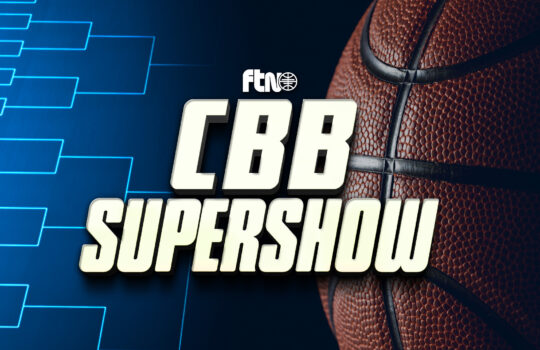

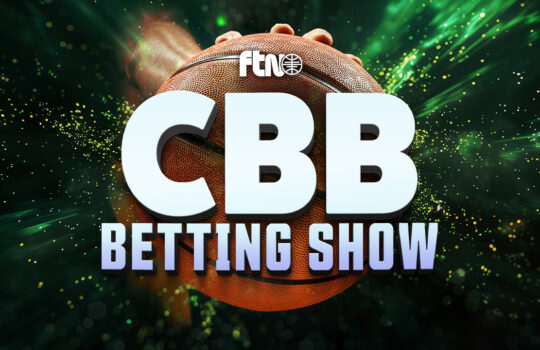




















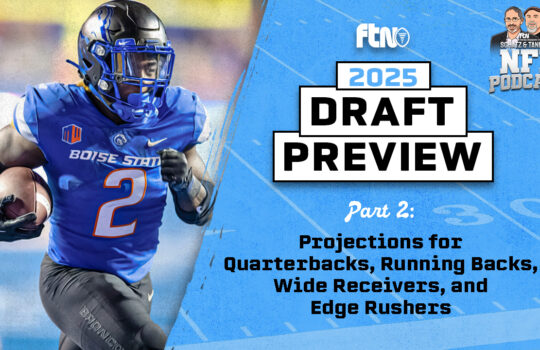
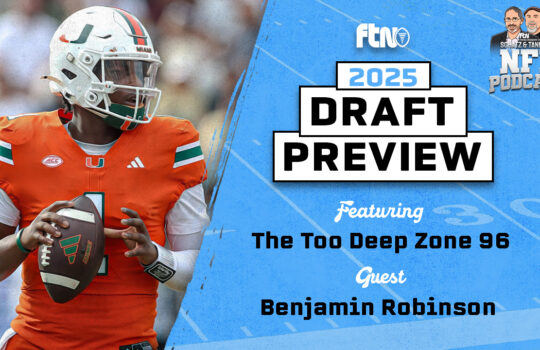
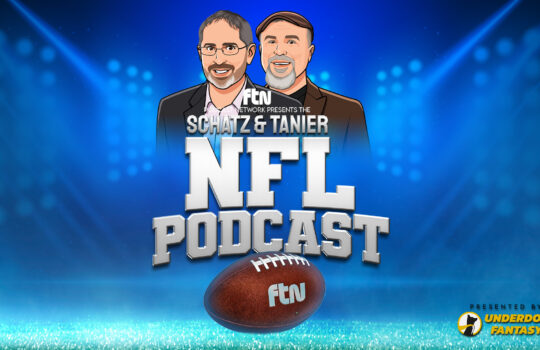






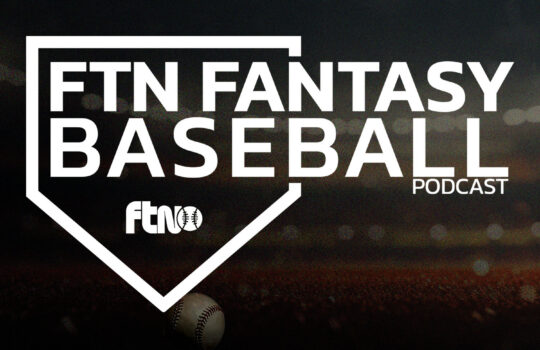

 New York Jets
New York Jets  New England Patriots
New England Patriots 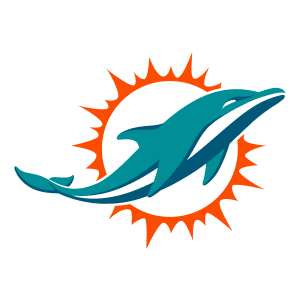 Miami Dolphins
Miami Dolphins  Buffalo Bills
Buffalo Bills  Pittsburgh Steelers
Pittsburgh Steelers  Cleveland Browns
Cleveland Browns  Cincinnati Bengals
Cincinnati Bengals  Baltimore Ravens
Baltimore Ravens 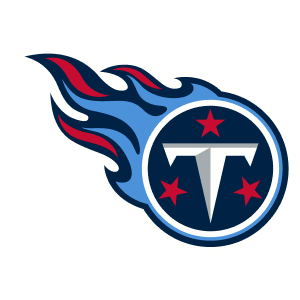 Tennessee Titans
Tennessee Titans  Jacksonville Jaguars
Jacksonville Jaguars  Indianapolis Colts
Indianapolis Colts  Houston Texans
Houston Texans  Las Vegas Raiders
Las Vegas Raiders 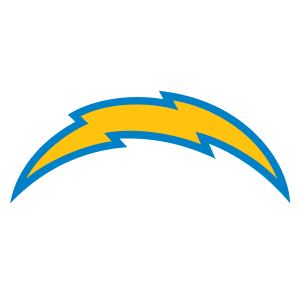 Los Angeles Chargers
Los Angeles Chargers  Kansas City Chiefs
Kansas City Chiefs 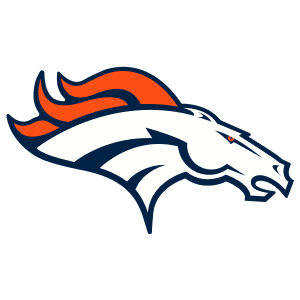 Denver Broncos
Denver Broncos  Washington Commanders
Washington Commanders  Philadelphia Eagles
Philadelphia Eagles 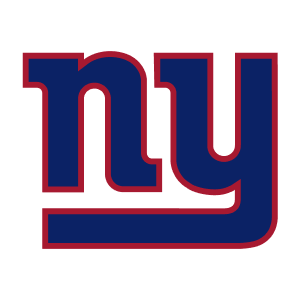 New York Giants
New York Giants  Dallas Cowboys
Dallas Cowboys  Minnesota Vikings
Minnesota Vikings 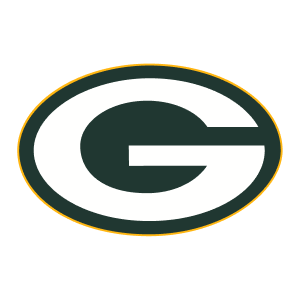 Green Bay Packers
Green Bay Packers 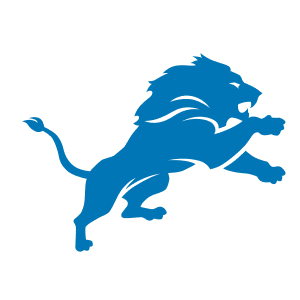 Detroit Lions
Detroit Lions 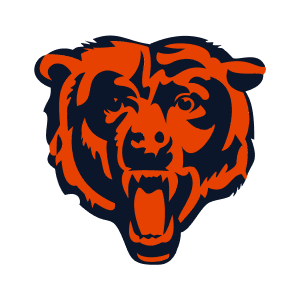 Chicago Bears
Chicago Bears 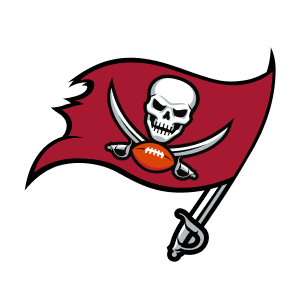 Tampa Bay Buccaneers
Tampa Bay Buccaneers  New Orleans Saints
New Orleans Saints 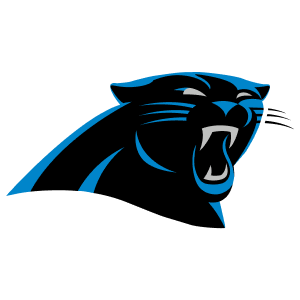 Carolina Panthers
Carolina Panthers 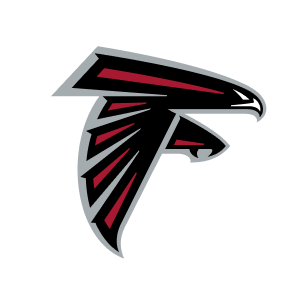 Atlanta Falcons
Atlanta Falcons  San Francisco 49ers
San Francisco 49ers 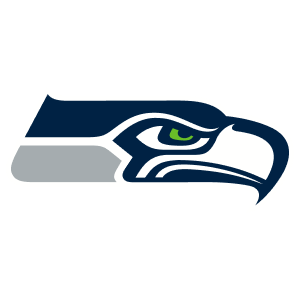 Seattle Seahawks
Seattle Seahawks  Los Angeles Rams
Los Angeles Rams 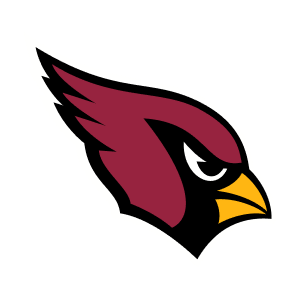 Arizona Cardinals
Arizona Cardinals 
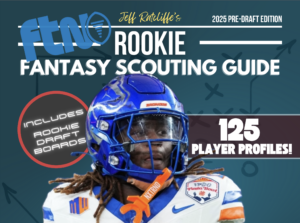


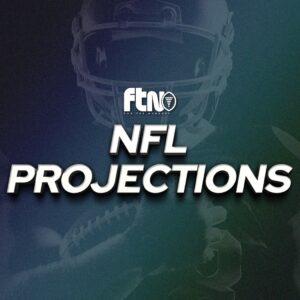




 Boston Celtics
Boston Celtics  Brooklyn Nets
Brooklyn Nets  Philadelphia 76ers
Philadelphia 76ers  New York Knicks
New York Knicks  Toronto Raptors
Toronto Raptors  Chicago Bulls
Chicago Bulls  Detroit Pistons
Detroit Pistons  Milwaukee Bucks
Milwaukee Bucks  Cleveland Cavaliers
Cleveland Cavaliers  Indiana Pacers
Indiana Pacers  Orlando Magic
Orlando Magic 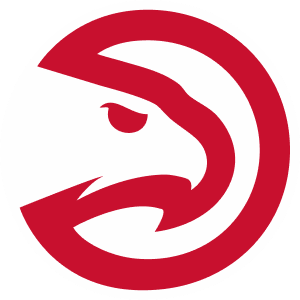 Atlanta Hawks
Atlanta Hawks  Charlotte Hornets
Charlotte Hornets  Miami Heat
Miami Heat  Washington Wizards
Washington Wizards  Denver Nuggets
Denver Nuggets  Minnesota Timberwolves
Minnesota Timberwolves  Oklahoma City Thunder
Oklahoma City Thunder  Portland Trail Blazers
Portland Trail Blazers  Utah Jazz
Utah Jazz  LA Clippers
LA Clippers  Golden State Warriors
Golden State Warriors  Los Angeles Lakers
Los Angeles Lakers  Phoenix Suns
Phoenix Suns  Sacramento Kings
Sacramento Kings  Dallas Mavericks
Dallas Mavericks  Houston Rockets
Houston Rockets  Memphis Grizzlies
Memphis Grizzlies  New Orleans Pelicans
New Orleans Pelicans  San Antonio Spurs
San Antonio Spurs 



